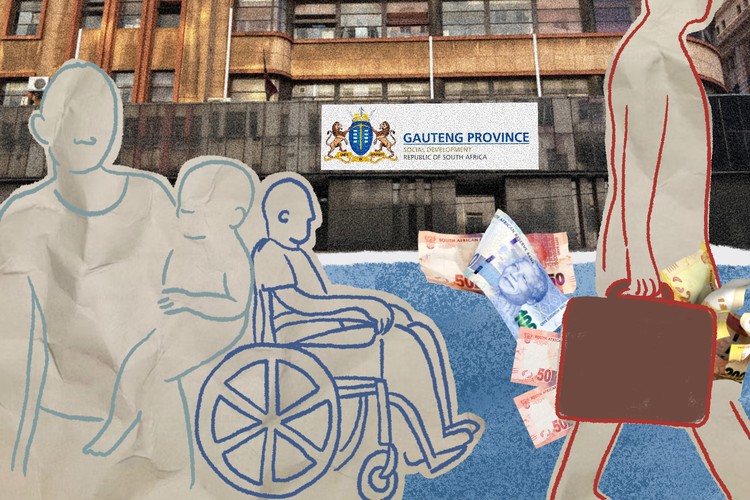Government-funded organisations getting a rough deal, Parliament told
Women’s shelters anxious about being shut down
Subsidies paid to social care organisations vary from province to province. Illustration: Lisa Nelson
The Gauteng Care Crisis Committee, a voluntary association of non-profit organisations, on Wednesday, told Parliament’s social development portfolio committee that organisations that receive government subsidies face an uncertain future.
Dr Zubeda Dangor, Executive Director of both the Nisaa Institute for Women’s Development and the National Shelter Movement of South Africa, said women’s shelters housing victims of violence are anxious that their funding will be taken away and be replaced with shelters operated by provincial social development departments.
Dangor said departments do not have the capacity to set up and manage shelters that offer all the same facilities, such as psychosocial services. Communication from provincial departments is insufficient, leaving shelter managers on edge about the future.
In Gauteng earlier this year, several women’s shelters had their funding withdrawn, following unproven allegations of non-compliance and financial mismanagement. The shelters were able to appeal but had to go several months without funding and some had to close their doors.
The Gauteng Care Crisis Committee successfully led litigation against the provincial Department of Social Development in May, compelling it to pay hundreds of organisations the subsidies owed to them.
Inconsistencies between provinces
Lisa Vetten, chair of the Gauteng Care Crisis Commitee, told GroundUp that the subsidy amounts organisations receive vary between provinces.
Some organisations were be paid less in one province for providing the same service as a similar organisations in another provinces, Vetten said.
Provinces spend different proportions of their budgets on organisations. For example, Vetten said, this year the Western Cape Department of Social Development allocated 40% of its budget to fund non-profit organisations while the Eastern Cape only allocated 13%.
Some provincial departments have started to provide services themselves and cut the number of non-profit organisations that provide those services, Vetten said.
Staff members, particularly social workers, at these organisations often earn much less than their counterparts in provincial social development departments.
In the Eastern Cape, social auxiliary workers earn below minimum wage, Vetten said. Social workers at non-profit organisations earn R12,302 per month, while entry-level social workers at the Department earn R25,687. Senior social workers at non-profit organisations earn R18,542 while departmental employees earn R37,722.
But in Limpopo there was almost no gap in the salaries of social workers at organisations and those who work in government.
The Western Cape pays the highest salaries for non-profit organisation employees, Vetten said.
Support independent journalism
Donate using Payfast

Don't miss out on the latest news
We respect your privacy, and promise we won't spam you.
© 2024 GroundUp. This article is licensed under a Creative Commons Attribution-NoDerivatives 4.0 International License.
You may republish this article, so long as you credit the authors and GroundUp, and do not change the text. Please include a link back to the original article.
We put an invisible pixel in the article so that we can count traffic to republishers. All analytics tools are solely on our servers. We do not give our logs to any third party. Logs are deleted after two weeks. We do not use any IP address identifying information except to count regional traffic. We are solely interested in counting hits, not tracking users. If you republish, please do not delete the invisible pixel.

